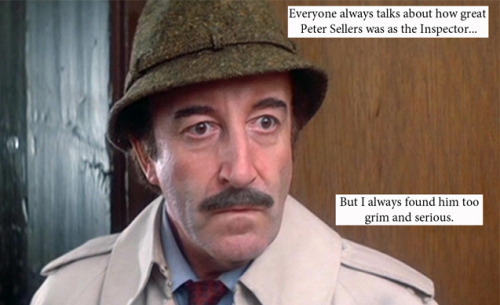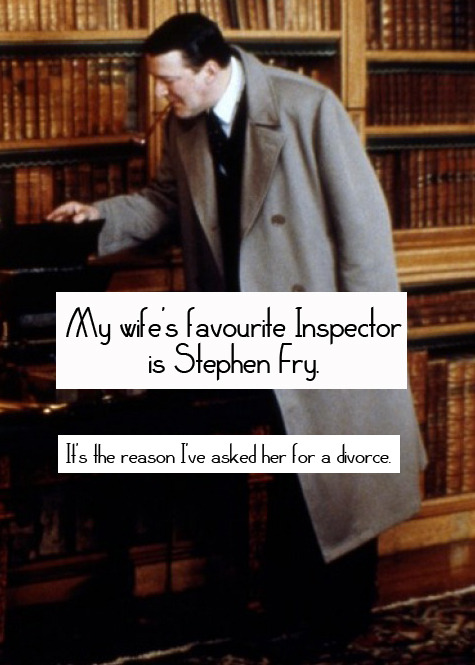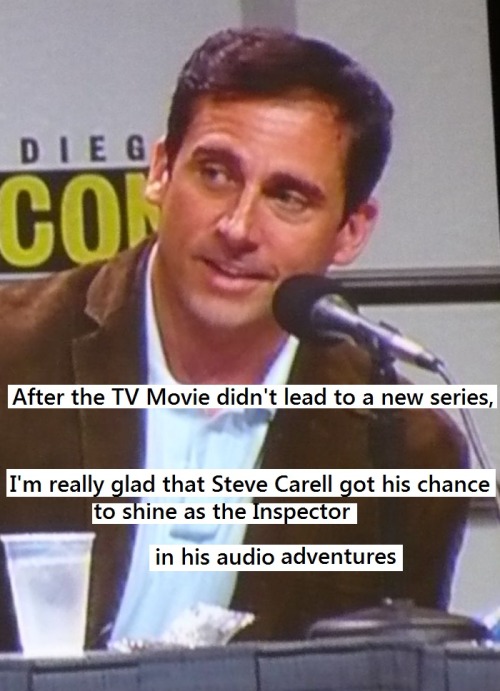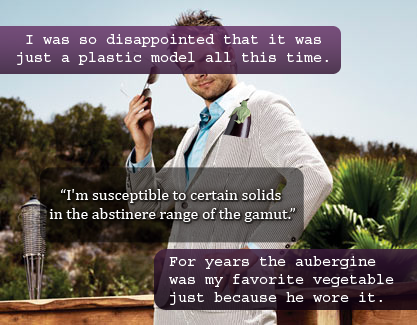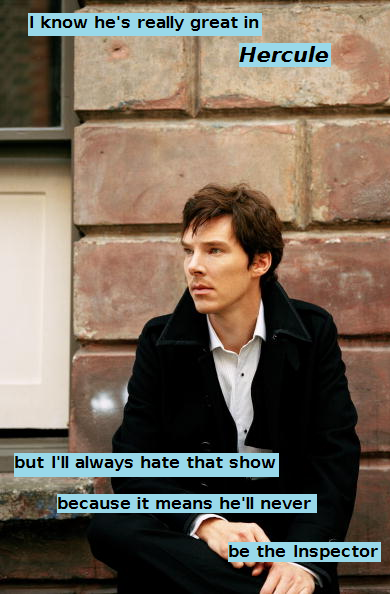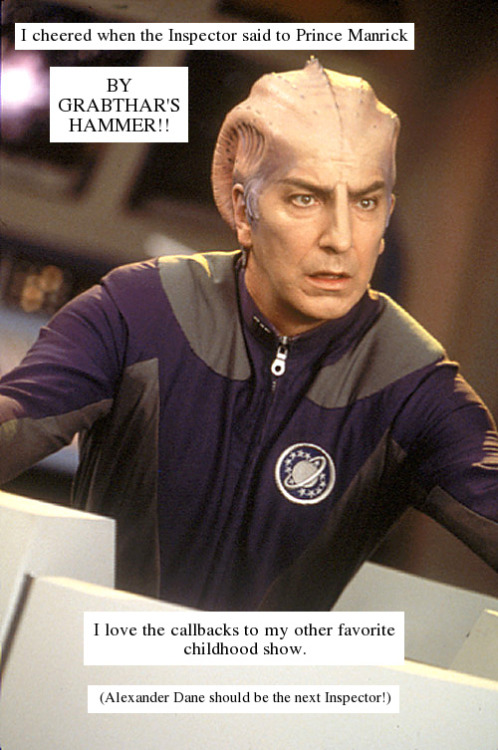-
"I cannot think of a worse fate: hearing something worse than John Mayer when you have to click on a link that says John Mayer. (Consider clicking on a Google search result for your dentist’s office phone number and getting your ex-girlfriend instead.)" This line is very funny, but the whole post is a shrewd explanation of the importance of resolution, and the fist Facebook makes of it. I hope consumers will discover they care about this more than they thought, too.
-
"Elizabeth David was a revelation for me. She was a wonderful prose writer and it was a habit that carried over in to her recipes which are often maddeningly vague. You would be forgiven for wondering whether there are recipes at all. They are really just a handful of paragraphs that serve as a rough guide in the general direction of the dish you're trying to make. The recipe that follows is much longer than anything she'd write." Yeah, but it still looks amazing, Aaron.
-
This is brilliant: mp3s of the little mod/tracker music tracks that accompany keygens, cracks, and intros. Hundreds, and it's strange to say "hey, PHOTOSHOPCS4CRK is my favourite!" A weird little bit of culture, perfectly captured.
-
IF legend Andrew "Zarf" Plotkin has adapted Jason Shiga's marvellous "Meanwhile" for the iPad. If you wanted someone to adapt your interactive fiction for another format – I can't think of a better person. Really looking forward to seeing how they've done this.
-
"It's a debugger for web pages, like FireBug (for FireFox) and Web Inspector (for WebKit-based browsers), except it's designed to work remotely, and in particular, to allow you debug web pages on a mobile device such as a phone." Blimey. That's, um, remarkably useful. Duly noted.
-
"A photograph has to be rational. It has to be rational in itself. It has to be rational and complete. … it is the illusion of a literal description of what the camera saw. From it, you can know very little. It has no narrative ability. You don't know what happened from the photography. You know how a piece of time and space looked to a camera." As usual, I'm reminded how much I love Gary Winogrand.
-
The ninth day of the Hindu Navaratri festival, the "Worship of Implements", where "weapons are worshiped by soldiers, and tools by artisans"; "In the cross cultural development that has revolutionized the society, with modern science making a lasting impact on the scientific knowledge and industrial base in India, the ethos of the old religious order is retained by worship of computers and typewriters also during the Ayudha Puja, in the same manner as practised in the past for weapons of warfare."
-
Jon is smart, and one of the best writers of interactive fiction (in all its forms) that I know. So I am looking forward to this.
-
"Velocity, depth, breadth. These are the dimensions we can add to books, that are the gifts of a digital age, not gimmicks, glossy presentation and media-catching stunts. The text works. It stands and speaks for itself. It is not what we need to change." Yes, yes, yes, this, a hundred times over.
-
"Driven by my devotion for vinyls and analog processes (perhaps a bit of Dj wannabe too), and emulating the audio tape cut&paste technique, I tried to make the vinyl sampling a bit more analog – literally cut and paste pieces of vinyl to create samples." Cut & Paste with physical vinyl; bonus points for excellent Delia Derbyshire video.
-
"I’m not saying that a book that makes you cry is a great book. It would be a wonderful criterion if only it worked, but alas it admits effective sentimentality, the knee-jerk/heart-string stimulus. For instance, a lot of us cry when reading of the death of an animal in a story — which in itself is interesting and significant, as if we give ourselves permission to weep the lesser tears — but that is something else and less. A book that makes me cry the way music can or tragedy can – deep tears, the tears that come of accepting as my own the grief there is in the world — must have something of greatness about it."
-
"Takes a snapshot with your Mac's built-in iSight webcam every time you git commit code, and archives a lolcat style image with it." YES.
-
"Between 2007 and 2009 GameLayers made a multiplayer game across all the content of the internet. I was the CEO of GameLayers and one of the co-founders. Here I'll share stories and data from this online social game startup. This story covers prototyping, fund raising, company building, strategic shifting, winding down and moving on." Brutally honest writing from Justin. It's detailed, clear, and the financial figures are worth a read if you're even remotely thinking about things that look like this. Definitely worth your time.
A quick guide to Inspector Spacetime
30 September 2011
So: a new season of Dan Harmon’s marvellous Community has begun in the US. It’s a very, very funny sitcom. It’s also a very funny sitcom that frequently plays on the expectation that the audience is deeply versed in pop culture, with entire episodes that pastiche movies and genres. You should watch it.
In S03E01, which aired last week, Abed – the TV geek inside the show – is distraught that his favourite show (Cougar Town) has been moved to mid-season – “never a good sign“. Afraid it’ll be cancelled, his friends try to find him a new favourite show. And, eventually, they stumble upon “a British sci-fi show that’s been on the air since 1962“:
Inspector Spacetime.
This is already a fairly brilliant joke – the phone box! The reboot-pastiching title card! And, you know, I hope it’ll return to haunt the rest of series.
But: then, the internet worked its magic.
The thing that has been entertaining me beyond all measure this week is Inspector Spacetime Confessions.
This is a tumblr account of a popular format: the “Confessions” format, in which fans of TV shows, books, movies, etc, post “secret” confessions about their take on characters, episodes, or arcs (sometimes, secret crushes) as text written across images. Amateur photoshop at its best. It was huge on Livejournal, and it’s ideally suited to Tumblr.
Except: there are, currently, about fifteen seconds of Inspector Spacetime in existence.
This, of course, does not matter when you’re TV literate. What’s happened is: fans are just making it up. They’re back extrapolating an entire chronology based on fifteen seconds of “tone”, and their entire knowledge of the Doctor Who canon.
So, they’re diving into gags about former Inspectors:
They’re torn about Stephen Fry:
The Steve Carrell TV movie wasn’t well received:
And of course, they’re concerned about pocket fruit:
But there are more sophisticated jokes emerging. Like this one:
This presumes, in the form of a “fan confession”, that: the showrunner of Inspector Spacetime is also running another show – Hercule – which appears to be a modern-day Poirot reboot, and of course, because Benedict Cumberbatch is starring in Hercule, he’ll never be the Inspector.
This is sophisticated on a bunch of levels, but its elegance is in the way that entire gag is contained in one sentence and a photograph.
Or how about this:
which presumes Inspector Spacetime lives in that land of fictional TV shows, and thus a fictional actor (Alexander Dane) who starred in Galaxy Quest really ought, one day, to return to SF as the Inspector.
There’s a slowly emerging canon, thanks in part to the Inspector Spacetime forum. A lot of the canon is useful – the DARSIT feels better than the CHRONO box, everyone’s sold on Fee-Line – but it’s sometimes nice to see people buck it, or introduce new ideas (and Inspectors) in the most throwaway of Confessions. All this, from a fifteen-second joke that we don’t know will continue (or if it’ll introduce continuity we don’t know about yet).
And yes, Dan Harmon knows about it.
In the week between the two most recent episodes of Community, this has given me a vast amount of joy; I’ve been rattling the various configurations of Inspectors and Associates in my head, trying to remember my favourite episodes of a sci-fi show that never existed. And then giggling at the ingenuity and brilliance of some of the other confessions appearing – of the whole fictional history they bring to life, of Liam Neeson’s run in the 80s or the creepiness of the Laughing Buddas.
It’s really hard to explain the joy (especially as someone fascinated by the inner workings of serial drama) that this brings me. It’s a funny kind of magic – it’s unofficial, didn’t happen on TV, and just relies of fans’ understandings of not only TV shows, but how telly itself works. The results are just brilliant.
I’m off to write my own confession now. There’s always room for one more.
-
"Good art is a kind of magic. It does magical things for both artist and audience. We can have long polysyllabic arguments about how to describe the way this magic works, but the plain fact is that good art is magical and precious and cool. It’s hard to try and make good art, and it seems to me wholly reasonable that good artists should be concerned with their work’s cultural reception." Oh, this.
-
Looks like I'm going to have to go get me an Ordning Timer soon, to go with the intervalometer.
